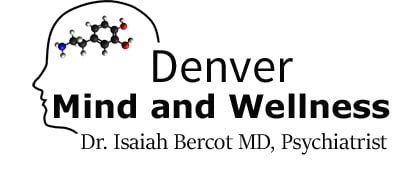Many people have experienced symptoms of depression. Some of the common symptoms are low energy, sadness, crying, poor concentration, and changes in appetite. People suffering from depression often don’t feel like getting out of bed. They typically are not getting ordinary enjoyment out of life anymore.
Various events in life can trigger depression—such as death of a loved one, divorce, and job changes. But depression can also be caused by low levels of certain neurotransmitters in the brain, such as serotonin. Medications such as Prozac treat depression by increasing the levels of serotonin in the brain.
But low serotonin levels are not the only neurological causes of depression. There are two other neurotransmitters that are often responsible for depression. When a person is simply not able to enjoy life anymore, the causes is often due to low levels of dopamine. The other key neurotransmitter is norepinephrine. Low levels of this neurotransmitter can affect energy levels and cause other symptoms of depression.
My approach to the treatment of depression is highly tailored to an individual patient’s unique symptoms. We have medications that can selectively boost the levels of serotonin, norepinephrine, and dopamine in a controlled manner.



